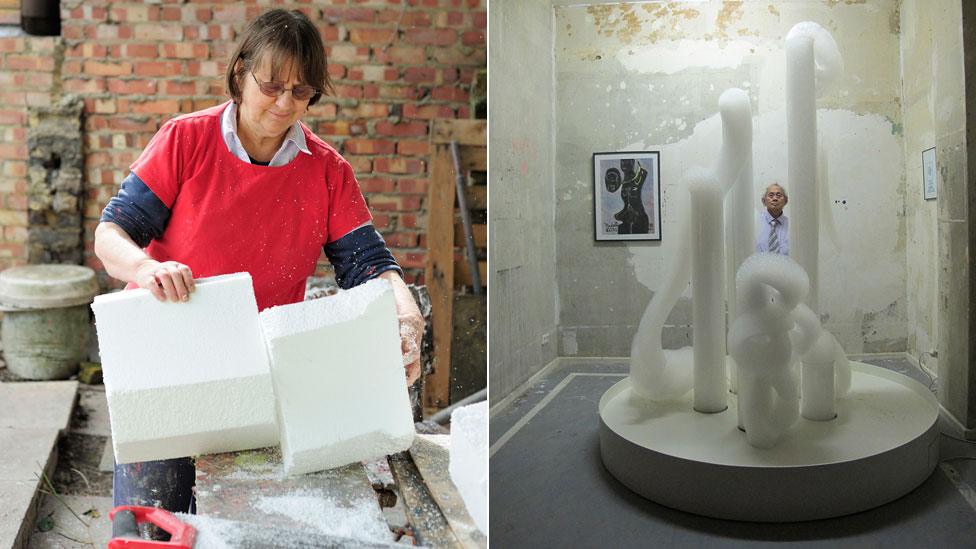Hepworth Prize winner Helen Marten pledges to share £30,000 sculpture award
- Published
The first Hepworth Prize for Sculpture was given out at a ceremony on Thursday night
The winner of the first Hepworth Prize for Sculpture has pledged to share the £30,000 award with her fellow nominees.
Helen Marten, who is also up for this year's Turner Prize, said she felt "the hierarchical position of art prizes today is to a certain extent flawed".
"I would be very happy if they accept to share the prize amongst the four of us," she told Radio Four's Front Row.
The organisers of the award said it was "entirely up to Helen" how she used the prize money.
"We support her decision to split it between the artists and think it a gracious and generous suggestion," they added.
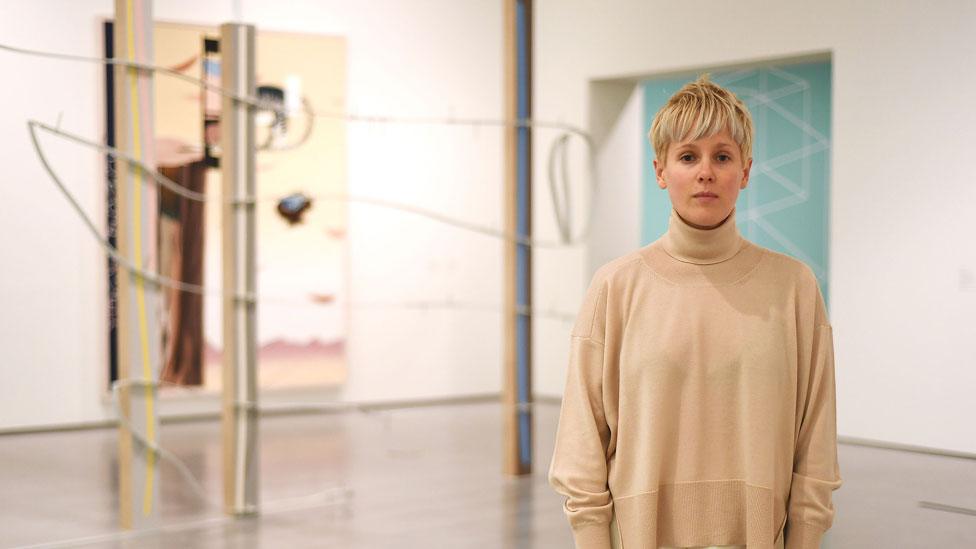
Marten is also on the shortlist for this year's Turner Prize
Phyllida Barlow, Steven Claydon and David Medalla were the other three shortlisted artists.
The award is open to any British or UK-based artist who has made a significant contribution to contemporary sculpture.
After receiving the prize from Burberry boss Christopher Bailey on Thursday, Marten said art was "deeply subjective".
"We should not be asserting a hierarchy in saying, this person is a winner above and beyond anybody else," she told BBC Radio 5 live's Colin Paterson.
"The context of the world's political landscape is changing so drastically," she went on.
"Amidst that, the art world has a responsibility to uphold an umbrella of egalitarianism and democracy and openness."
Marten also indicated she would share the £25,000 Turner Prize, were she to win it on 5 December.
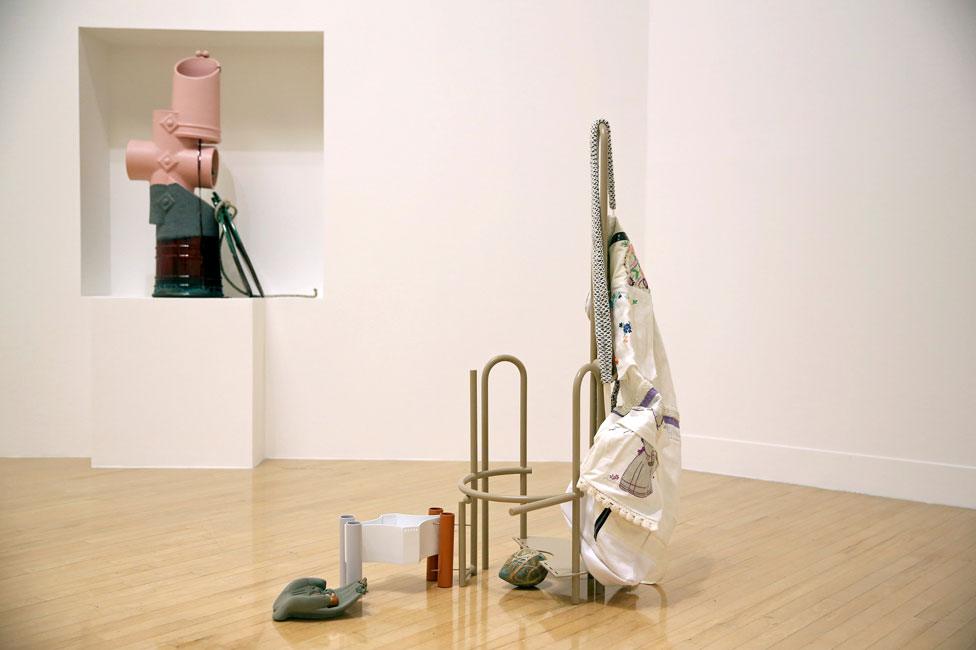
The artist turns familiar images and objects into intricate installations
Marten said a precedent for sharing prize money had already been set by US artist Theaster Gates, who last year pledged to share the £40,000 Artes Mundi prize with his nine fellow nominees.
Earlier this week the recipient of another arts award - the Baillie Gifford Prize for non-fiction - donated the £30,000 prize money to a refugee charity.
International lawyer Philippe Sands said he and fellow nominated writer Hisham Matar had decided before the announcement that they would share the prize, and donate the sum, if either won.
Macclesfield-born Marten said she was "deeply flattered and excited" to have been shortlisted for the UK's first sculpture prize.
Yet she said she was not looking forward to the Turner Prize ceremony, saying it was "a myth" that artists desired "a public display of spectacle".
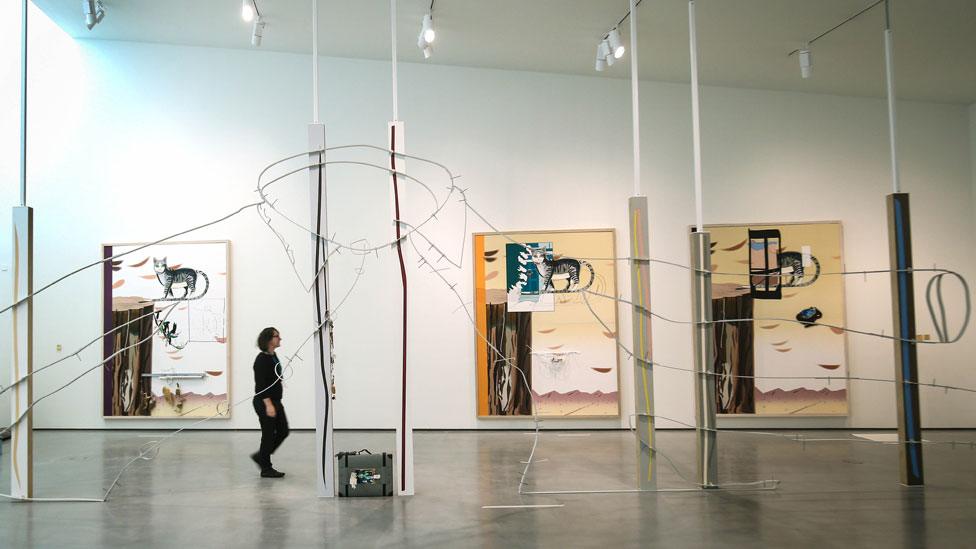
Marten's artwork can currently be seen at both Hepworth Wakefield and Tate Britain
Marten, said chief judge and Hepworth Wakefield director Simon Wallis, was "one of the strongest and most singular voices" in British art and a "fitting winner".
Her "refined craft and intellectual precision", he said, "address[ed] our relationship to objects and materials in a digital age".
Her winning entry featured seven of her recent works, which fold familiar images and objects from everyday surroundings into intricately crafted installations.
The artist used a variety of materials, ranging from wood, ceramic, metal and leather to more unusual materials like feathers, shells and gum-wrappers.
"In a world collapsing under the pressure of billions of personal interfaces, it is exciting to celebrate our relationship to physical touch," Marten has said of her work.
The prize aims to "demystify" contemporary sculpture, with visitors to the exhibition being encouraged to debate and judge it for themselves.
The Hepworth Wakefield gallery opened in 2011 and features the largest number of works by artist Barbara Hepworth on permanent display anywhere in the UK.
Hepworth, who was born in the Yorkshire city in 1903, was a contemporary of Castleford-born Henry Moore, with the pair among the most highly regarded sculptors of the 20th Century.
She attended Leeds School of Art in the 1920s and opened a studio in St Ives in Cornwall in 1949.
The artist and sculptor, who was made a CBE in the 1958 New Year Honours list, died in a fire at her studio in 1975.
The exhibition for the prize, displaying the entries of all four finalists, will run until 19 February 2017.

Follow us on Facebook, external, on Twitter @BBCNewsEnts, external, or on Instagram at bbcnewsents, external. If you have a story suggestion email entertainment.news@bbc.co.uk, external.
- Published18 November 2016
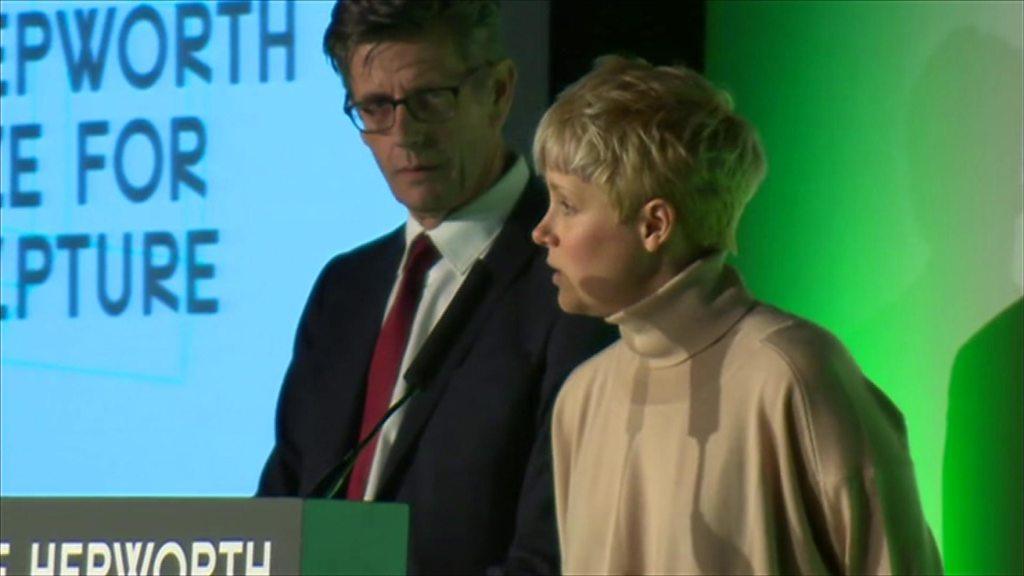
- Published20 October 2016
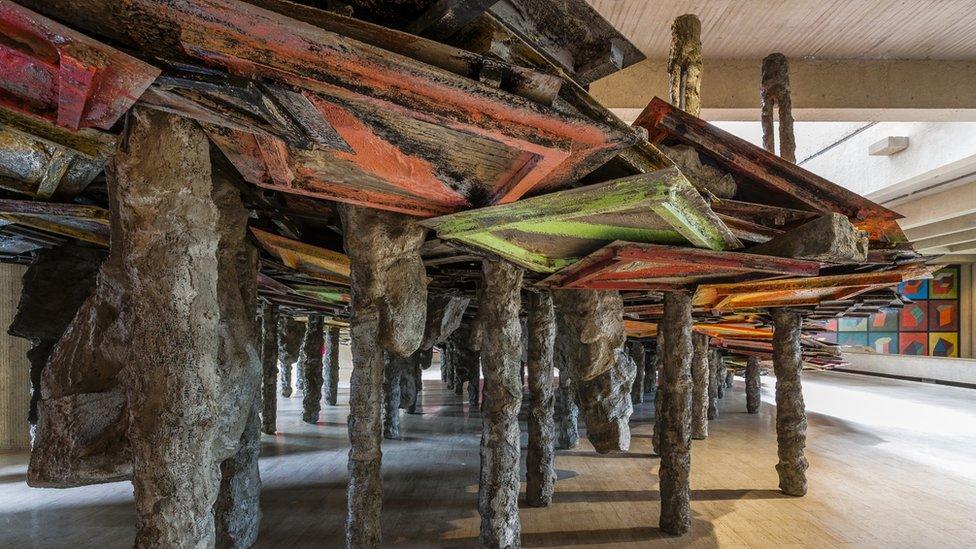
- Published27 September 2016
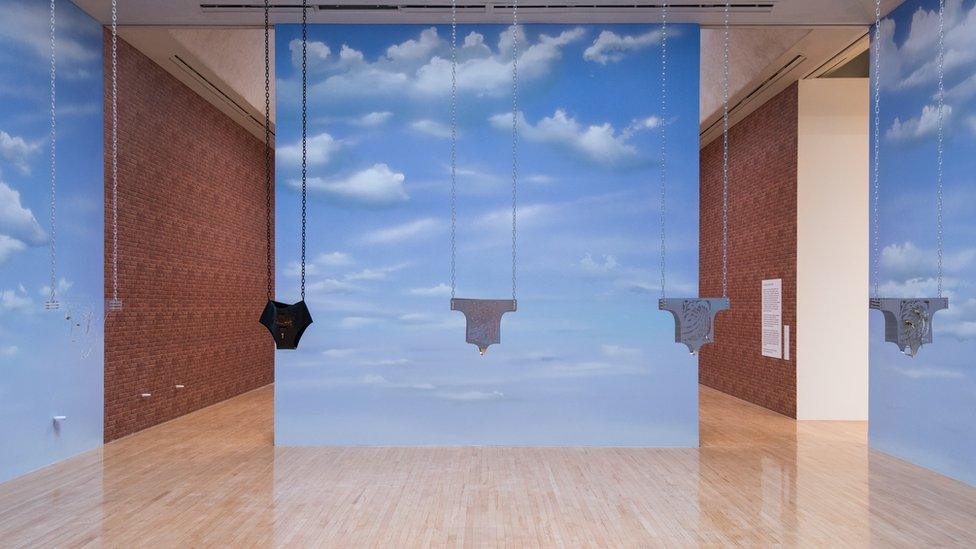
- Published21 March 2016
